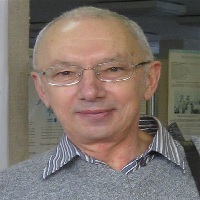
Reshetilov Anatoly
Russian Academy of Sciences, Moscow
Biography
Our first works on biosensors dealt primarily with the development of electrochemical type microbial biosensors. The aim of the research was to consider the applied potential of microbial cells and to highlight the results obtained in developing models of analytical devices for detection of readily utilizable useful organic compounds (carbohydrates, alcohols, organic acids) and toxic compounds (hydrocarbons, surfactants). The basis of those biosensors was Clark-type electrodes, electrodes obtained by screen printed techniques and based on field-effect transistors. Then we extended our interest of research; the purposeful application of microorganisms for assessment of biochemical oxygen demand (BOD) was considered. We used empirically chosen cultures of bacterial and yeast cells to form biosensor receptor elements. During the last several years the aim of the search was to study the
characteristics of the microbial fuel cells, the development of microbial fuel cells not distinctly different from microbial biosensors. This approach yielded several positive results: Fragments of cell membranes (membrane fractions) were intensively used; nanomaterials were applied to develop electrodes; a novel approach based on the converter-based accumulation of electricity was applied for accumulation of electric energy. These topics are considered in the presentation.
Abstract
Abstract : Microbial biosensors for environmental applications and the potential of microbial fuel cells

